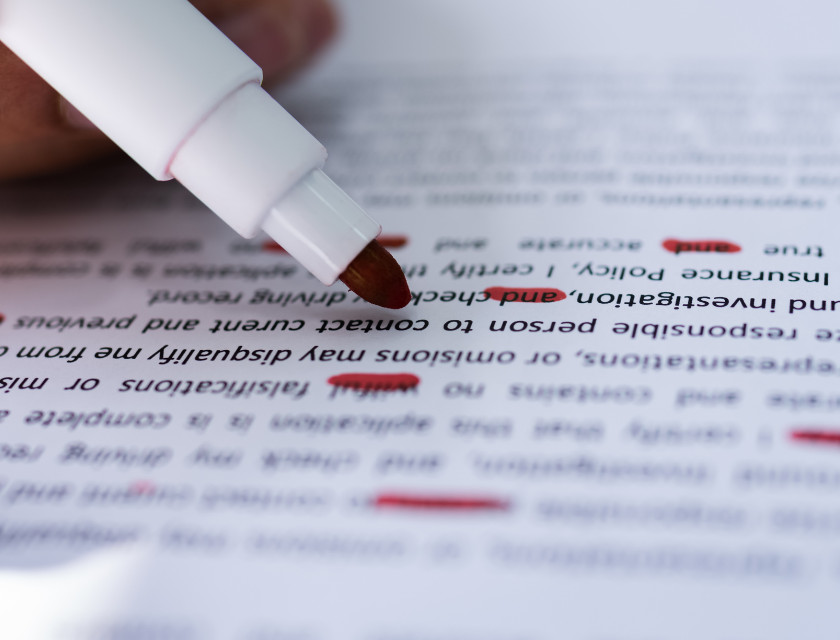Are you searching for the best tips to create the most compelling essay? We’ve compiled some of the best essay writing tips so that you don’t have to search far and wide to learn how to write a good essay. Take a look at these top 100 essay writing tips!
100 Essay Writing Tips
#1 Analyse the question.
#2 Define your argument.
#3 Use reputable sources of evidence to support your claims (i.e. not Wikipedia).
#4 Share different perspectives.
#5 On draft number 1, don’t worry about spelling, punctuation or grammar!
#6 Rewrite draft 2 on a new blank document.
#7 Use transitional phrases and words.
#8 Divide your essay into three main parts: introduction, main body, conclusion.
#9 Check your spelling, punctuation and grammar in your final draft.
#10 Double-check your spelling, punctuation and grammar before you submit.
#11 Cite your sources correctly (check the guidelines or ask your teacher).
#12 Avoid using conjunctions at the start of sentences e.g. And / But / Also.
#13 Put direct quotes in quotation marks, citing them correctly.
#14 Avoid plagiarism (your teacher or the marker will know if you have copied).
#15 Rephrase your research – put it into your own words.
#16 Avoid the repetition of phrases and words.
#17 Use a thesaurus to find synonyms for words you have used often.
#18 Provide statistics to support your claims.
#19 Cite facts to support your arguments.
#20 Use emotive language where appropriate to write a compelling argument.

#21 Avoid spending too much time on your introduction and conclusion.
#22 Get somebody else to proofread it.
#23 Get feedback from friends and family (or even a teacher).
#24 Don’t be afraid to delete irrelevant points and evidence.
#25 Avoid slang and colloquial language.
#26 Use formal language throughout your essay.
#27 Double space your essay (check essay requirements to ensure you format it correctly).
#28 Use appropriate titles and headings.
#29 Use an appropriate font (Times New Roman, size 12 is the most common, acceptable font).
#30 Avoid images unless you have been asked to use them.
#31 Avoid talking about yourself or providing anecdotal information.
#32 Avoid cliches, try to be original in your writing.
#33 Keep your introduction and conclusion short.
#34 Stick to the word count (universities usually allow 10% over or under).
#35 Distribute the word count appropriately across your introduction, main body and conclusion (e.g. 10/80/10).
#36 Read it out loud to spot errors.
#37 Make sure your writing is clear and concise.
#38 Avoid citing sources in your bibliography that are irrelevant.
#39 Use grammar checking software to check for grammar errors.
#40 Don’t depend solely on grammar checking software (because it’s a computer, it may get context wrong).

#41 Read your work critically – have you answered the question?
#42 Don’t get distracted by what you WANT to write, focus on answering the question.
#43 Check the grading criteria and set your goals – if you want an A, what do you need to do to get there?
#44 Create a checklist based on the grading criteria.
#45 Create a timetable to write your essay and plan your time wisely.
#46 Plan your writing during times when you’re least likely to get disturbed.
#47 Work in a place where you are least likely to get distracted.
#48 Write your essay in 25-minute increments and take a break after each one.
#49 Have snacks and refreshments to hand.
#50 Take a break after writing each draft, for example, 2 days where you don’t look at it (this will allow you to process information and go back to your essay with fresh eyes).
#51 Remember that stress doesn’t help – you’re most likely going to write well when you’re the least stressed.
#52 If you’re struggling to write your essay at home, do it in a study group or at the library. You’ll likely be more productive surrounded by other people who are working, too.
#53 Don’t leave it to the last minute – write several drafts in good time.
#54 Plan your final week to work on formatting only (do the bulk of the work way before the final week).
#55 Swap work with a friend and give each other feedback, or do this in a group.
#56 Make sure you know the submission criteria way before submitting e.g. the format of your essay, rules for submission, etc.
#57 Define the type of essay you’re writing – is it argumentative, persuasive, expository, admissions, compare/contrast, analytical or narrative?
#58 Brainstorm the essay before writing it.
#59 Keep your notes handy.
#60 Identify the gaps in your knowledge before writing.

#61 Before you begin writing, do as much productive research as you can.
#62 Read relevant books and reputable articles to learn more about your topic.
#63 Write notes in the form of short answers to your question, it will be easier to put them into your essay later on.
#64 If you’re finding it difficult to answer the question, more research is needed.
#65 Identify your WHY – Why do you need to write this essay? What will happen if you get an A or win the essay competition? Why is it important to you?
#66 When essay writing is becoming a struggle, remember your WHY to keep motivated.
#67 In your introduction, remember to clearly state your topic and your main points.
#68 Avoid explaining your points in your introduction (you do that in the main body).
#69 For every point or opinion you introduce, be sure to include some evidence and an explanation.
#70 Avoid filling your essay up with opinions with no supporting evidence.
#71 Explain your points clearly and concisely.
#72 Stay on topic.
#73 When proofreading, consider if the essay sparks the reader’s interest. If it doesn’t, see what you can do to improve this.
#74 Double check you have used paragraphs correctly.
#75 Ensure each argument has a single focus and a clear connection to the thesis statement.
#76 Ensure you have clear transitions between your sentences and paragraphs.
#77 Ensure your essay has an informative and compelling style.
#78 Try using these phrases such as: In view of; in light of; considering.
#79 Use one of the following sentence structure when writing about your evidence “According to…” “…. stated that, “Referring to the views of…”.
#80 Maintain an unbiased voice in your writing – your goal is to present some intriguing arguments to the reader.

#81 Try using phrases such as “In order to…”, “To that end…”, “To this end…”.
#82 Use phrases like these to emphasize a point: In other words; to put it another way; that is; to put it more simply.
#83 Other phrases you could use are: Similarly; likewise; another key fact to remember; as well as; an equally significant aspect of.
#84 When comparing ideas or opinions, use phrases such as: By contrast; in comparison; then again; that said; yet.
#85 Use these phrases to demonstrate a positive aspect of something: Despite this; provided that; nonetheless.
#86 Another way to add contrast is using these phrases: Importantly; significantly; notably; another key point.
#87 When giving examples, try using phrases like these: For instance; to give an illustration of; to exemplify; to demonstrate; as evidence; to elucidate.
#88 Try using these phrases in your conclusion: In conclusion; to conclude; to summarise; on close analysis.
#89 Consider what might be your most compelling argument and, depending on how it fits within the context of your other points, use it to begin your main body.
#90 When explaining the significance of something, use one of these phrases: Therefore; this suggests that; it can be seen that; the consequence of this is.
#91 When summarising, you can use some of these phrases: Above all; chiefly; especially; most significantly; it should be noted.
#92 You might want to use the phrase “All things considered” when summarising towards the end of your essay.
#93 Should you use Wikipedia (there are no rules against using it!) investigate the citations at the bottom of the page. It’s better to cite these rather than Wikipedia itself.
#94 Remember that the marker will always check to see if you have copied your work – so don’t do it.
#95 Try your best.
#96 Remember that writing an essay is also an opportunity to learn.
#97 Ensure you set aside a good amount of time (e.g. a week) purely for research and planning – this will ground your argument from the very beginning.
#98 Make sure you understand the definition of the words you have used.
#99 Work hard but remember to take breaks.
#100 Submit your essay on time!

Join the Immerse Education 2025 Essay Competition
Follow the instructions to write and submit your best essay for a chance to be awarded a 100% scholarship.



























